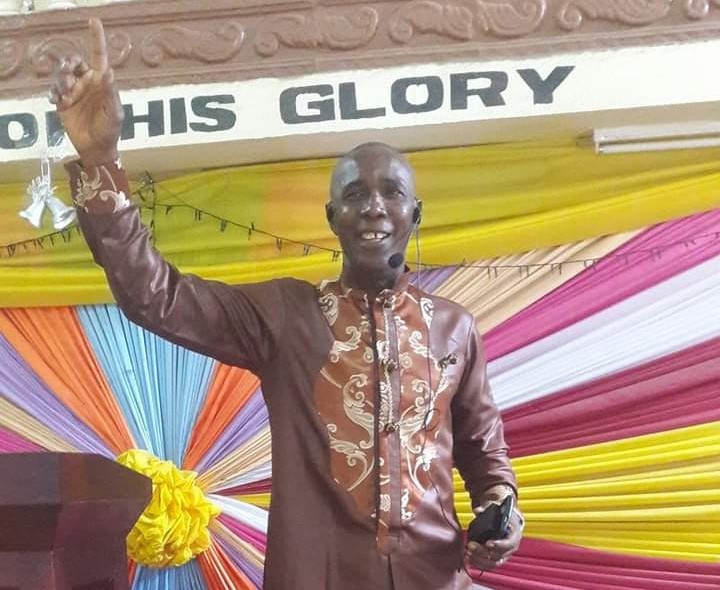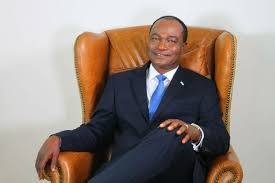John Benjamin, a politician speaking from a political perspective
Political issues, just like conflict, attract the media ‘as powerfully as flies gather around sweets’, writes Chinyere Stella Okunna, in a paper titled, ‘Communication and Conflict: A commentary on the Role of the Media’, in the book, Africa Media Review,1994. It was, and still interesting, therefore, to see people criticizing the media for digging into political matters. Many a time, I have been told by my readers that the media in Sierra Leone has been overtaken by political events. Yes, that is true, and the reasons are obvious, as stated by the writer quoted above. You cannot separate media from politics; the media is relevant to governance and politics is related to governance.
Media and politics
Now, we can also relate media to politics because, it is the media’s role to expose the abuse of state power, the mismanagement of public resources, including bribery and corruption. For Adame Ba Konare in his work tilted, History, Democracy, Values: New Lines of Reflection, ‘…bribery and corrupt practices are no longer regarded as an evil by the majority of people,’ but that ‘On the contrary’, she went on, ‘these are evils necessary to power; as longer as the leader can distribute emoluments around him….’ But this should not be the case, from the point of view of the media.
As a country, we are striving to ensure, we get leaders that are democratic in nature and from a political point of view, to be such a leader requires a great capacity to withstand blows, be patient and tolerant, and ‘have a sense of self restraint…’ and of course knowledge, vision and unwavering faith in democracy. We have had few democratic transitions; the one in which power was transferred to then President Tejan Kabbah and the most recent being the transfer of power to current President Koroma. But the Ernest Koroma-led government has and still continues to encounter serious political charging from, especially the opposition Sierra Leone Peoples’ Party, chaired by John O. Benjamin.Â
Quite recently, and that was prior to the recently concluded Consultative Group’s meeting in the United Kingdom, John Benjamin came out with series of concerns against the government, in a letter addressed to the President. The letter was received with mixed feelings. From the perspective of members of the ruling party, the letter was meant to discredit the efforts of this government and to paint a bad picture of the government. But for members of the opposition, it was a way of raising issues which could serve as an impetus to the process of uniting the country.
Interviewing Ernest Koroma
Few days ago, I had an interview with John Benjamin of the SLPP; the subject of the interview was obvious! When President Ernest Bai Koroma was in opposition, I had at least five interviews with him on national political issues. I recalled traveling with him also on a number of occasions to the provincial towns, when he was canvassing the people of this country for their political mandate to allow him rule this country. It was, in my view a real political drama. You talk to Ernest Koroma today on an issue, and the then ruling party was always ready to challenge him on what he (Ernest Koroma) was telling the nation. I remember, interviewing Ernest Koroma on issues relating to the fight against corruption; I came out with the story and the other day, one of the country’s fine, prolific writers, Sama Banya, came out with an opinion, challenging not only Ernest Koroma but the paper that carried the story. It was actually interesting, to say the least. And it went on like that.
Meeting John Benjamin
As I stated, I met John Benjamin recently and I first asked him how we as a nation, could build on the institutional reforms we have been able to create. Practically, it was as a result of the collective support that we gave to then President Tejan Kabbah that he (Kabbah) was able to put up institutional reforms like the ACC, IMC, NRA, NASSIT, PPRC, and so on. Now, in governance, it is only when we have institutional reforms that we stand the chance of moving forward. We all know the adverse effect the war had on us as a nation, and so, when Kabbah came, his priorities were that of ending the war and building up institutional reforms; and to an extent, he met some of these priorities, even if not entirely.
So, mindful of the fact that President Koroma has also paid attention to the provision of electricity, there is also the need for us to ensure we sustain and build on these institutional reforms. For John Benjamin, one way of sustaining these institutions is by making them fully operational. ‘The President should take his hands off from their operation…’ he told me. He referred to the sacking of people he claimed to be supporters of the SLPP. He thinks the government should be looking at the aspect of service delivery; what people are doing in their places of work, and ‘not their political affiliations…’ Benjamin said.
He thinks also, that the government should follow procedures laid down in either terminating people from employment, or retiring them from same. He showed me a letter, terminating the services of the Head of Internal Audits at the Sierra Leone Ports Authority. The person in question was served the letter on the 20th of November, the same day his services were terminated. ‘What does that mean, then’? I asked him  ‘This is like killing him…,’ Benjamin retorted. The development and growth of Sierra Leone, he said is for all and sundry and should therefore, involve everybody.
He thinks, in a democracy the media and civil society are very relevant in the sustenance of democratic credentials, and he is of the view that it would be unfair for the ‘media and civil society to be quiet, thereby allowing democracy to destroy democracy’ He thinks also that it is not a matter of the media always condemning but that they should be seen raising issues of national concern
Out rightly, he condemned the practice of tribalism in governance. ’When I was Minister of Finance, there were two deputies, one from the north and another from the south; the Financial Secretary was from the north, the Accountant General was from the Western Area-it was a mixture; well balanced- setup
He spoke of the recent decision by government to recall a staff from the Sierra Leone Embassy in Liberia, who was alleged to have spoken to Benjamin when he was in Liberia. He said when the SLPP went for the CG meeting prior to the 2007 elections, supporters of the APC went in numbers to protest, and that he only wrote a letter of concern to the President on issues, before the meeting and he was criticized. He also pointed out that the role of an opposition, he said, is relevant in democracy. ‘We are serving as checks and balances for the government to be on track….’ Indeed, how true, this is, especially for our growing democracy. Jokingly he said ‘… We should not be a mumu opposition’.
Benjamin on PMDC
The Peoples’ Movement for Democratic Change, with Charles Margai as Leader was formed out of the desire to destroy the chances the SLPP had in winning the 2007 Presidential Elections. Practically, the PMDC’s alliance with the APC following the run-off elections was successful; the parties (PMDC) to make it difficult for the SLPP to win in a place like Bonthe, which was/is traditionally a stronghold of the SLPP. He also wanted to detribalize the country. Currently, it would appear, Charles is disappointed at APC. It also took some strategic people from the SLPP into its fold; so there was some kind of political uncertainty for the SLPP.
But it would appear the PMDC are getting annoyed every other day, with the way they say, the APC are treating them. So I asked John Benjamin what this means for the SLPP as a party. He thinks: ‘…they have realized…; they went to the APC because they thought things were going to be in their favour. Charles should now act on what he says…’Benjamin said. He spoke that the PMDC will definitely work with the SLPP and that he has been having talks with Charles Margai on the way forward. Whatever the case, I am of the opinion that the SLPP have realized the importance of the PMDC in the political dispensation of this country.Â
SLPP Flag-bearer
The SLPP is having the Herculean task of actually presenting a candidate that could face the popularity of Ernest and defeat him in his second term bid for the presidency. But Benjamin said the flag-bearer for the SLPP will definitely defeat Ernest Koroma come 2012, and that ‘the people will know that we would change our role from opposition to a ruling party.…’
The SLPP has often and again been accused of not allowing young people into the highest echelon of the party. But this is not the view of Mr. Benjamin. The youthfulness in terms of politics should be developed within the party so that party would benefit from their energy. Â Â He believes it does not necessarily mean presenting a young person as a contestant against Ernest Koroma, but one who has simply risen through the ranks of the party. Benjamin, in a rather disturbed mood, stated that, they were building the party ‘as an institution so that people go through it…This is not the party people used to know…’
Really, I am adopting a policy of wait and see, because from the viewpoint of African politics, an incumbent president always has the chance of being reelected for a second term. Â But for Benjamin, they are going to change that perception of a second term, especially from the way things are going ‘… we are going to deny him a second term democratically. We will present ourselves on a national ticket…’Â
As we ended the conversation, I was left with the impression that, John Benjamin was a formidable politician; and that there was every need for all our political players to come together for the growth of this country. This was how now President Koroma used to be sharp when in opposition. And he is, in my view, still sharp in governance. I am speaking from the journalistic perspective.  Indeed, ‘…Democracy is not a perfect system of governance…’, as argued by Anne Hammerstad in her book, titled, African Commitments to Democracy in Theory and Practice  but it would be difficult to point out any other system that has had the same level of success in protecting and supporting the political and economic rights of individuals in a civilized state.
As an aside however, I need to state on purpose that I did not reveal to John Benjamin that I was a staff of the NRA, and therefore could not have commented on the concerns he raised during the interview in relation to that institution. Be that as it may, I was left with the lasting impression that John Benjamin was a true politician -an astute one indeed!
Stay with Sierra Express Media, for your trusted place in news!
© 2009, https:. All rights reserved.







